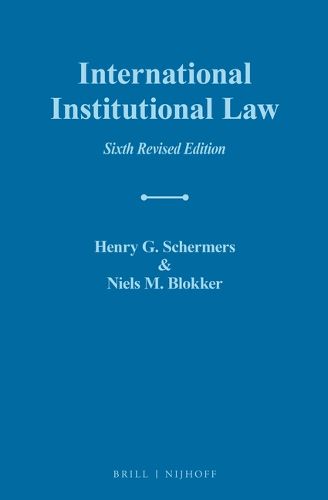Readings Newsletter
Become a Readings Member to make your shopping experience even easier.
Sign in or sign up for free!
You’re not far away from qualifying for FREE standard shipping within Australia
You’ve qualified for FREE standard shipping within Australia
The cart is loading…






This sixth, revised edition of International Institutional Law covers the most recent developments in the field. Although public international organizations such as the United Nations, the World Trade Organization, the African Union, ASEAN, the European Union, Mercosur, NATO and OPEC have broadly divergent objectives, powers, fields of activity and numbers of member states, they also share a wide variety of institutional characteristics. Rather than being a handbook for specific organizations, the book offers a comparative analysis of the institutional law of international organizations. It includes chapters on the rules and practices concerning membership, institutional structure, decision-making, financing, legal order, supervision and sanctions, legal status and external relations. The book’s theoretical framework and extensive use of case-studies is designed to appeal to both academics and practitioners.
$9.00 standard shipping within Australia
FREE standard shipping within Australia for orders over $100.00
Express & International shipping calculated at checkout
This sixth, revised edition of International Institutional Law covers the most recent developments in the field. Although public international organizations such as the United Nations, the World Trade Organization, the African Union, ASEAN, the European Union, Mercosur, NATO and OPEC have broadly divergent objectives, powers, fields of activity and numbers of member states, they also share a wide variety of institutional characteristics. Rather than being a handbook for specific organizations, the book offers a comparative analysis of the institutional law of international organizations. It includes chapters on the rules and practices concerning membership, institutional structure, decision-making, financing, legal order, supervision and sanctions, legal status and external relations. The book’s theoretical framework and extensive use of case-studies is designed to appeal to both academics and practitioners.